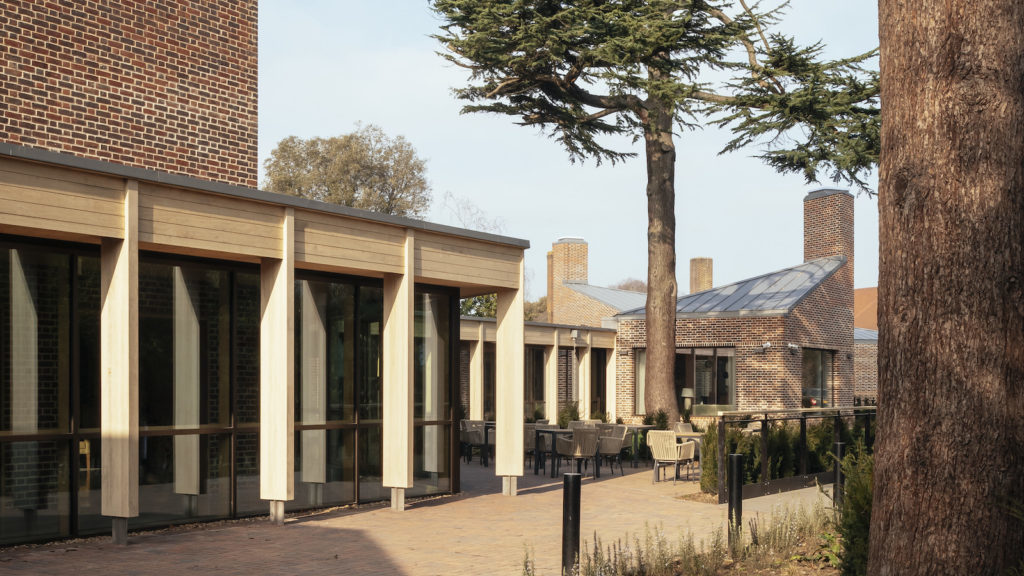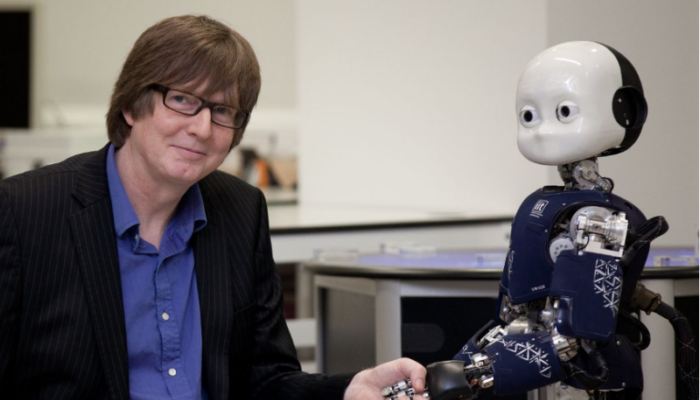Caring Times on the road: Morden College and the John Morden Centre

This month Caring Times visited a care provider with a rich heritage that has added a new building to its campus – and finds out more about the eponymous John Morden.
Since it was founded in 1695 in London’s Blackheath, Morden College has provided supported residential accommodation to older people. Its first buildings were designed by Sir Christopher Wren and today, over three centuries later, architect Mæ has created a beautiful new community and health facility for residents – a fantastic contemporary building that does justice to the site’s rich heritage – allowing Morden College to improve provision for its residents.
So, who was John Morden?
A merchant and philanthropist, London-born Sir John Morden amassed a substantial fortune with the East India Company. In 1695, he resigned and, with his wife, established a hospice for poor merchants.
Morden College chief executive David Rutherford-Jones explained: “They set up this foundation, the idea being at the time to look after people who’d been in the trading industry, given that trade was probably the largest growth industry in the world at the time, for those who just didn’t get lucky – a lot of ships disappeared simply because they sunk. If you didn’t have some money in your pocket, there was no welfare state, so you’d literally find yourself in the gutter. His wife, with her faith, wanted there to be a chaplain who would run the place and, back then, residents would have paraded twice a day for church and the rules of the chaplain are above the altar in the Quadrangle.”
Broadly speaking, that’s what the college does to this day, but the remit has extended outside the trading industry to the whole of society. “The key requirements to be in our care are to be in financial hardship; we look at loneliness and isolation as a key factor, and in your working life, you’ve held responsibility and been a leader more than a follower.”
For example, Morden College recently housed a missionary couple who worked in the Anglican Church in South America for 45 years.
One of the college’s strategic aims is to survive for another 300 years. “The John Morden Centre is a manifestation of that,” said Rutherford-Jones.
Building for the future Mæ’s work on the John Morden Centre acts as a new public face for the college. It is arranged as a series of red brick ‘pavilions’ with steeply pitched roofs and tall chimneys – clearly referencing Wren’s Grade I listed original buildings. The pavilions contain a large lounge and library, art spaces, a health centre, a cafe and beauty treatment rooms, linked by a meandering cloister: a pleasant and informal social space, used year- round by residents and overlooking the gardens. The John Morden Centre acts as a hub catering to a wide range when looking for a home for his mother.
“Private homes are saying to their customers: ‘We will give you an amazing journey to the end of your life.’ The people who have that sort of money are also very fussy about how they spend it, so the homes have to be run immaculately to keep a high reputation.
“It’s quite interesting, being in the industry and looking around – the homes I viewed were different to us because we are a charity. Although more and more new homes are being built, a lot of them still exist in buildings that were not originally designed to be care homes. Some are rather lovely private houses, but I’m not sure they’re brilliant care homes. I still think we’re trapped, in a way, by a set of design criteria which were founded quite a long time ago. Even in a new-build home, I was quite surprised that it was a bit ‘yesterday’s design’ – just corridors with rooms.”
He was very impressed by a Signature home he visited: “They’re much more thoughtfully designed around a frail and ageing population. There was a wonderful integration in the one I went to – it was very hard to differentiate the dementia wing from any other part of it. You wouldn’t have known that you were in a secure area because you could wander out into this beautiful garden. The whole thing was integrated and flowed, so it felt like a real home – there were no visible signs anywhere in the building of what I call hospitalisation and it was designed to be convenient for the staff as well.”
He has also seen the importance of larger room design through the pandemic: “We all became short of staff, certainly until we were able to test for Covid-19, and there were long periods in the day when the residents were on their own, but if it was a more spacious, lovely environment to be in, I think they would have coped with that better. I think what’s happened due to the pandemic in the care sector, is that old people are deconditioned, because they’ve been isolated in small tight places, and not had much human contact. If you create a nice environment in the first place, it changes things; I think space becomes a really important factor in designing homes of the future.”
Rutherford-Jones has taken his observations, including a much bolder
use of technology and larger rooms, and is in the process of implementing them at Morden College.
Attracting and retaining staff
Although currently slightly understaffed, Rutherford-Jones believes that working for Morden College has plenty of advantages.
“I read in the paper on Sunday that even the Savoy, one of the nation’s primary luxury hotels, is thinking of closing its principal restaurant three days a week because they just can’t get staff. I think we pay well – we are very proud to be a London Living Wage employer, which for a small London charity is quite unusual. We made a conscious decision to pay our carers well above the market rate because it’s such a personal thing, it’s so intimate for the resident – you do need somebody who wants to do it as a vocation. We’re paying more than the NHS, so I think in remuneration terms, we are generous. Since I’ve been here, we have paid a Christmas bonus every year, which has never been any less than a week’s additional pay.
“But I would like to think that it’s not all about the money. We have a 20-day sick leave policy and we are conducting a rewards review so they are more individually focused and there’s something for everyone.”
Potential employees undertake a psychometric test to indicate character: “It’s served us well, it helps us to understand when somebody is naturally empathetic and has decency underwritten in their character. I’m based on campus and have lunch with my staff and my residents – management is very visible. I think that if we get the character balance right, it creates a very happy working environment. We’re also very lucky – another selling point is that we have beautiful, award-winning grounds. We have a lovely John Morden centre for lunch, which is incredibly subsidised. We’re happy to do that because that’s a part of encouraging our staff to feel that they are provided for by us. We’re not just a care home, I think that we’re a caring environment. I feel that broadly speaking, it is a pretty happy place to be.”
I’m sure John Morden would be very proud to see how much good his legacy has achieved.



